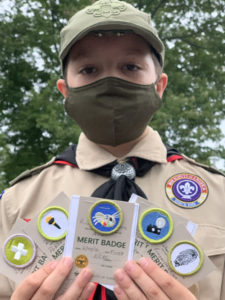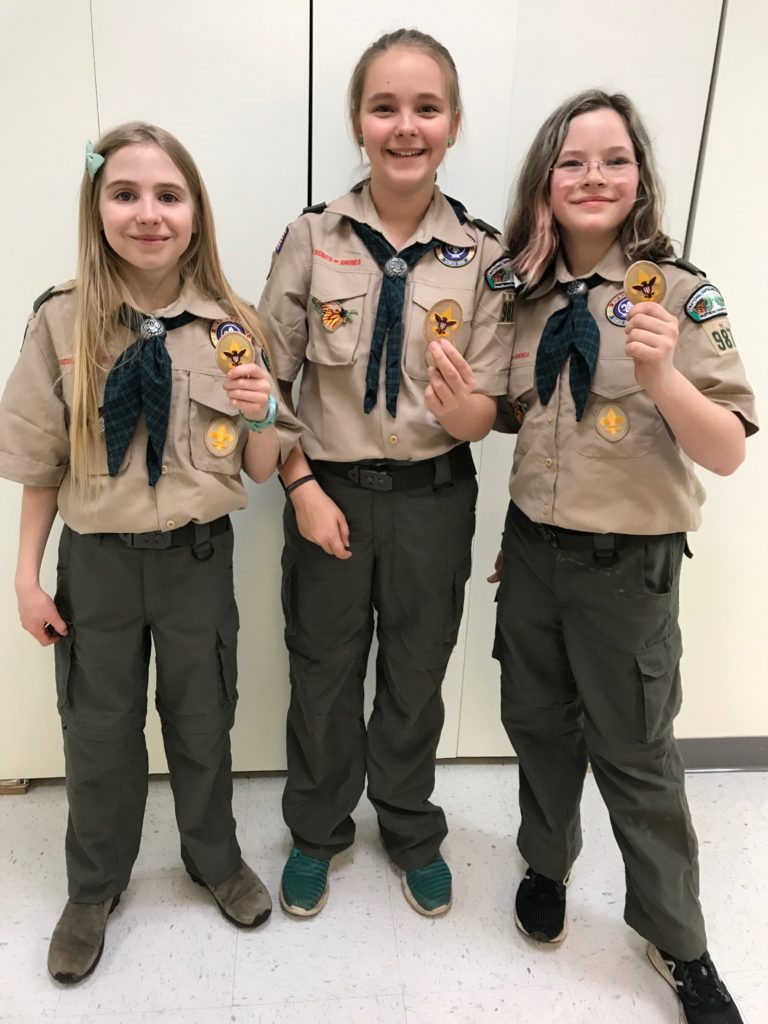On October 28th 2020, BSA Troop 1268 of New Market, MD celebrated its first female Eagle Scout. Ashlyn Cooper of New Market, MD became one of the first class of female Eagle Scouts in the country after successfully completing her Eagle Scout board of review. She joined BSA the very first day that BSA opened up their Scouting program to female youth in February 2019 and completed her Eagle rank work in Sept 2020. She has embraced the program with 100% passion, having logged 48 camping nights, 160 miles of hiking, 200 service hours, 39 merit badges, 5 summer camps, serving as the troop’s first Senior Patrol Leader, attending and then joining staff for the BSA’s National Youth Leadership Training, and being inducted into the Order of the Arrow. Through all of this, Ashlyn’s excitement about sScouting only continues to grow and become infectious to others in the troop. This journey for Ashlyn is not over at Eagle. She plans to continue to earn Eagle Palms, having already earned 3 and has a goal of 60 merit badges by the time she turns 18. She will also now be taking on a bigger role within the Troop as a Junior Assistant Scoutmaster, and will be encouraged to become an even stronger leader.
Ashlyn comes from a long lineage of Scouting. Her grandmother was the first female leader for her uncle’s BSA Troop many years ago when he was in Scouts, her grandfather was a Sea Scout leader, her father is Scout Master of the Scouts BSA troop 268 linked to her Scouts BSA Troop 1268G and her older brother is also an Eagle Scout.
We congratulate Ashlyn on all she has achieved and will continue to help her to achieve more.
For more information on our program, please visit www.troop1268.org.

 Tonight we had an in-person court of honor and I got my Scout rank and 5 merit badges that I got online over the summer working with virtual merit badge counselors. We did a socially distanced mask wearing ceremony outside. We made s’mores at the fire ring and it started to rain so we went home. My mom and sister in 1158G took photos of me for this because I’m now 5 merit badge ahead of my sister and the same rank as her. Mom is calling this sibling rivalry… in a good way. I love having more merit badges than her.
Tonight we had an in-person court of honor and I got my Scout rank and 5 merit badges that I got online over the summer working with virtual merit badge counselors. We did a socially distanced mask wearing ceremony outside. We made s’mores at the fire ring and it started to rain so we went home. My mom and sister in 1158G took photos of me for this because I’m now 5 merit badge ahead of my sister and the same rank as her. Mom is calling this sibling rivalry… in a good way. I love having more merit badges than her.